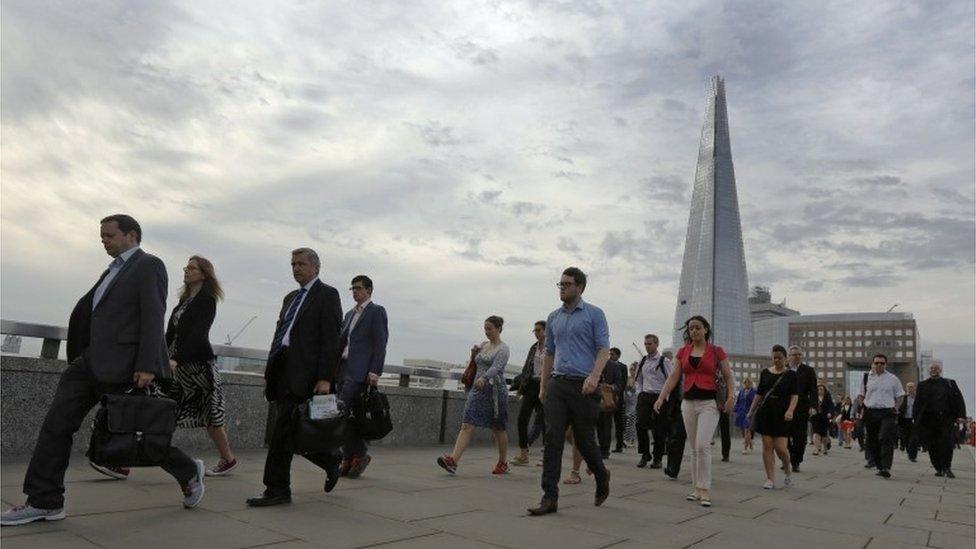UK unemployment rate at lowest since 2005
- Published

The employment rate remained at a record high
The UK unemployment rate has fallen to 5%, the lowest since October 2005, according to official figures.
The unemployment total fell to 1.67 million in the February-to-April period, down 20,000 from the previous quarter, the Office for National Statistics (ONS), external said.
The number of people in work rose by 55,000, with the employment rate remaining at a record high of 74.2%.
Earnings, excluding bonuses, rose by 2.3% compared with last year.
The rise was bigger than analysts had expected, and pay growth in April itself was 2.5%, which the ONS said was partly due to the introduction of the National Living Wage.
The introduction of the new, compulsory National Living Wage of £7.20 an hour for workers aged 25 and above affected 1.8 million workers.
Earnings including bonuses were 2% higher from year earlier, the ONS said.
The number of people out of work and claiming benefits fell by just 400 in May to 746,100, although April's figure was revised higher by 6,400 as information about those claiming out-of-work benefit under the new system of Universal Credit came in.
Caution
Other data from the ONS showed public sector employment rose by 6,000, mainly because of a rise in the number of people employed within the NHS.
However, the number of people now employed in local government has fallen to a record low of 2.2 million.
Private firms have been taking on more staff, with the number employed by private companies up by nearly half a million over the past year to 26 million.
Chris Williamson, chief economist at analysts Markit, said the employment figures were good news, but added that there were risks ahead.
"More recent survey data suggest that employers' demand for staff has cooled in more recent months amid worries about Brexit and a slowing economy, suggesting the good news should be treated with some caution."
There have also been warnings that the new National Living Wage could affect jobs growth. Recruitment firm Manpower recently warned that one third of retailers intended to limit the number of new staff they take on to offset higher wage bills.
- Published14 June 2016

- Published8 June 2016
